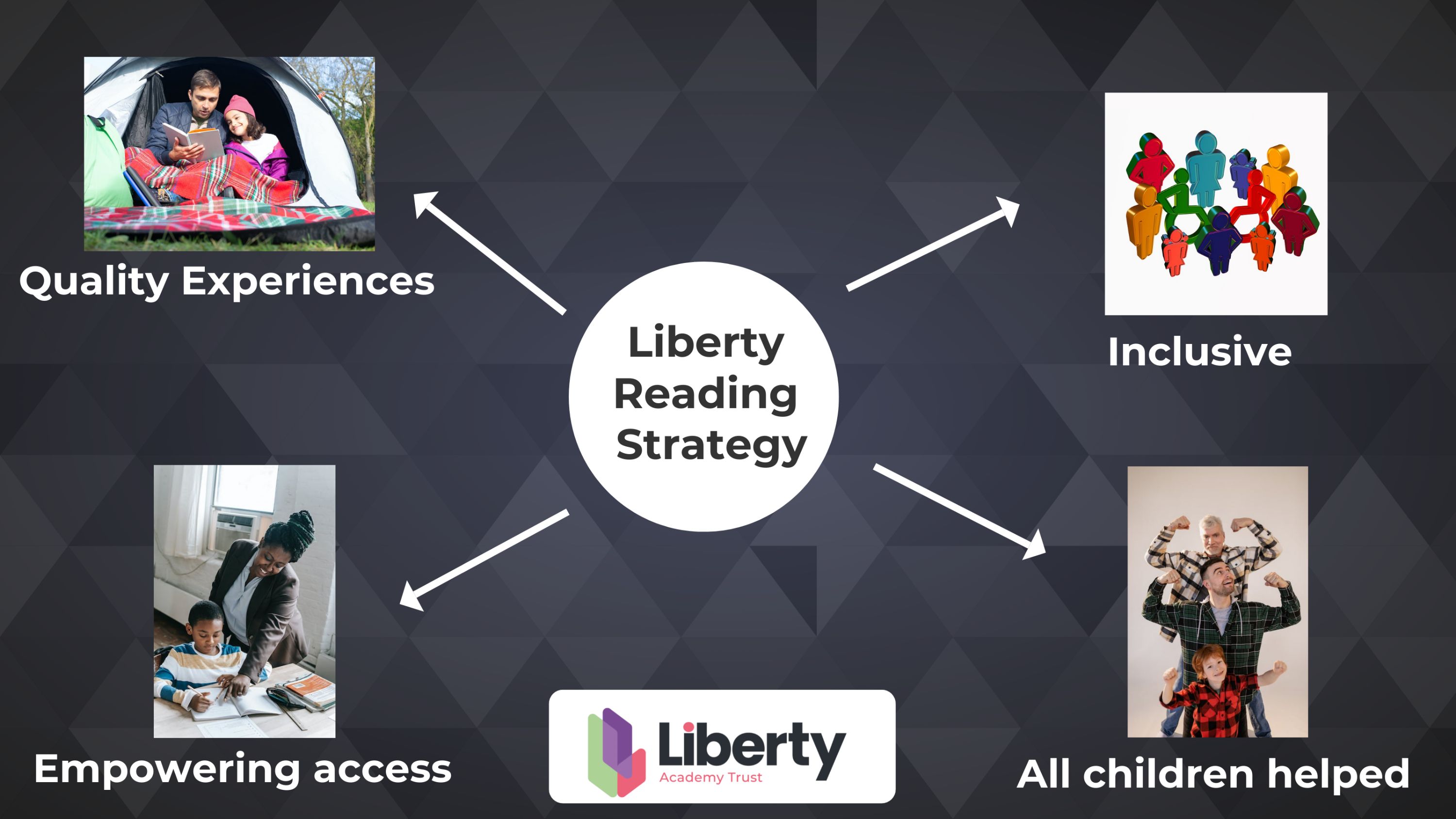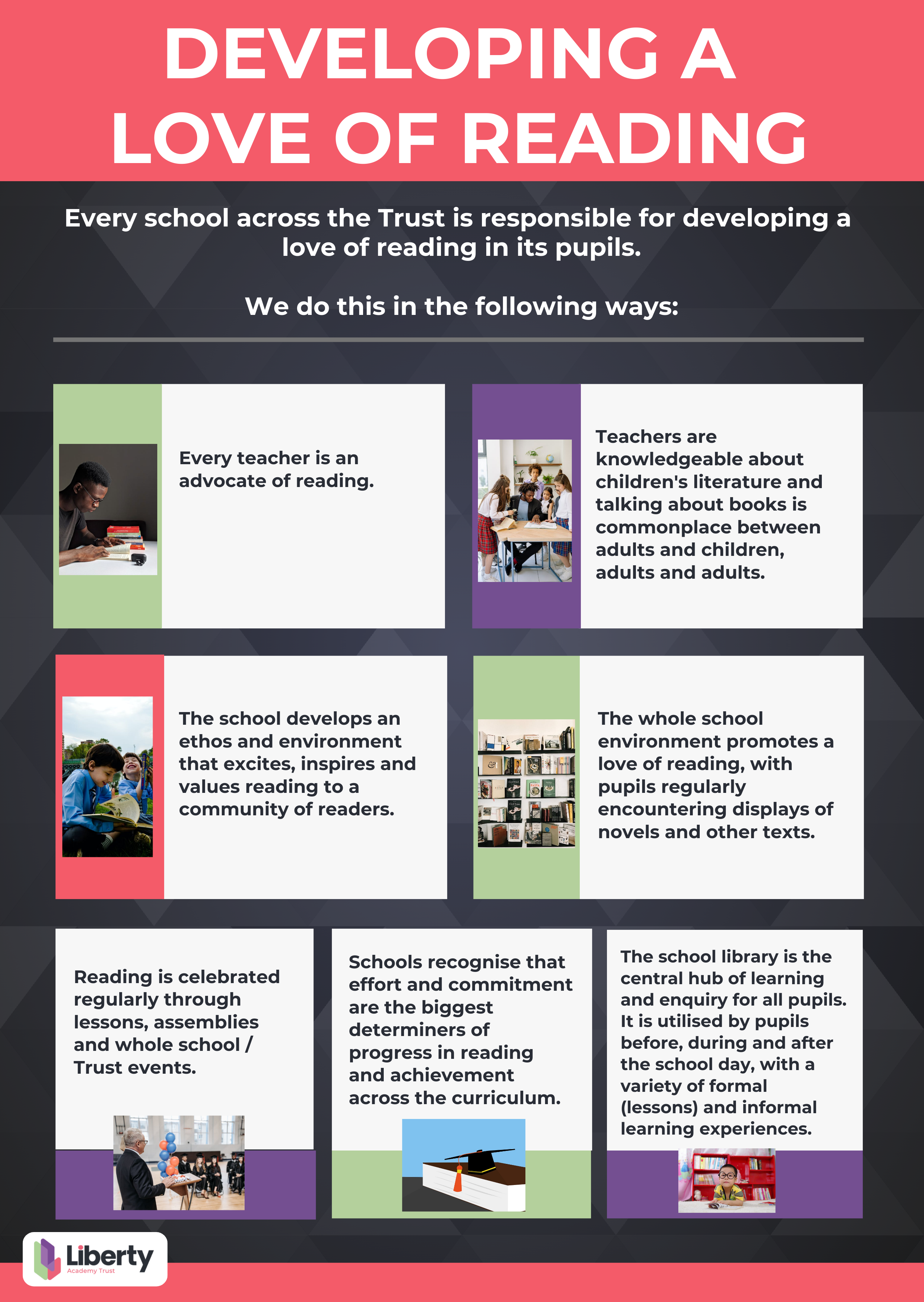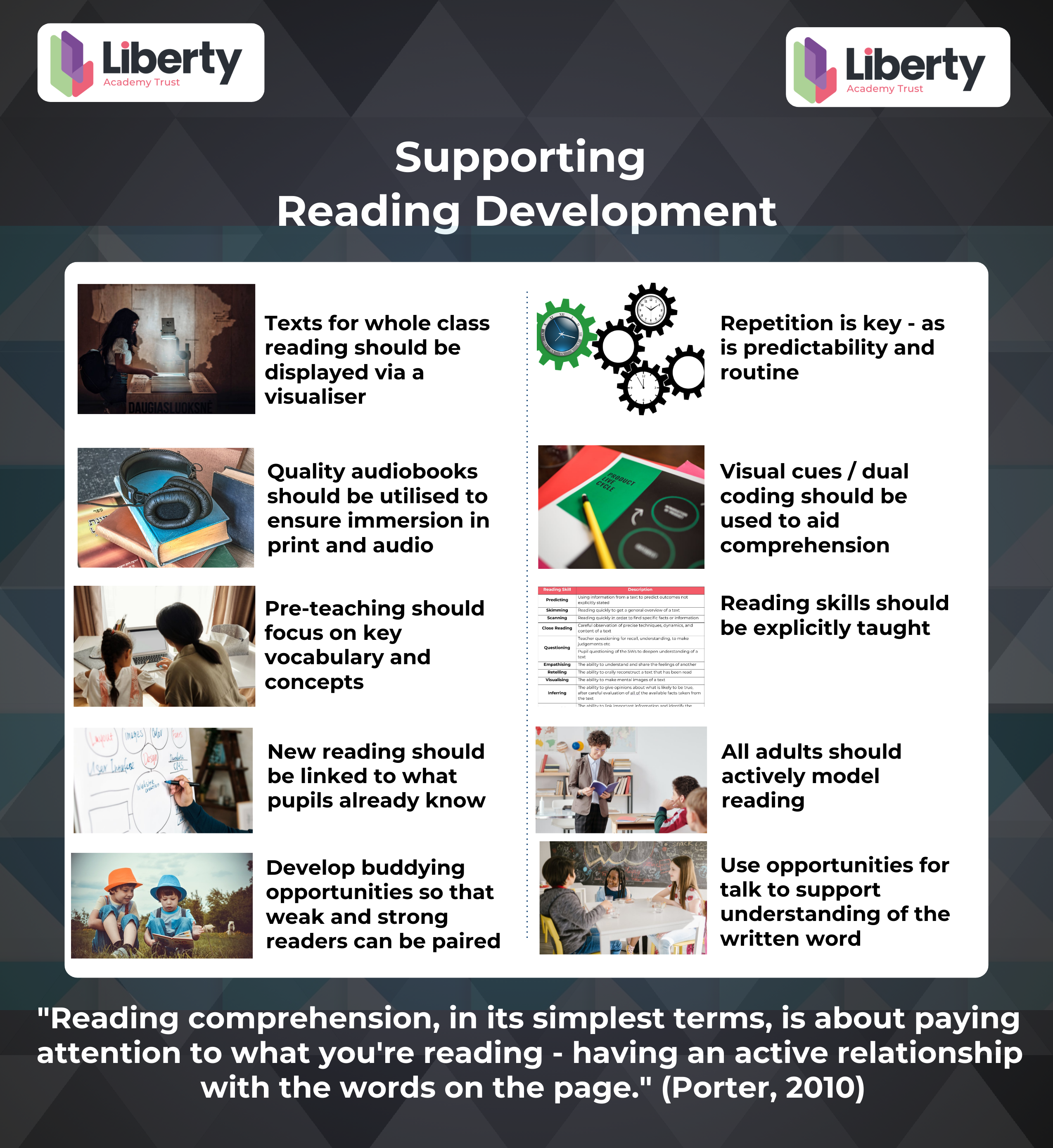Reading Strategy
The importance of reading cannot be underestimated; every pupil across all LIBERTY schools should be supported to develop their fluency and proficiency in reading, as this is the vehicle for success now and in future life. Statistics relating to special schools indicate very low rates of basic literacy (Robert’s-Tyler et al, 2020), whilst the attainment gap in reading for children with SEND has been around 40 percentage points at every key stage and phase for the last ten years (DfE, Statistical First Release, 2020)
We are determined that the pupils in our care will not become another statistic.
An inclusive reading strategy is about the quality of reading experiences for our pupils; how they are taught and helped in their reading journey, enabling them to achieve their potential and participate fully in school life.
We know that literacy poverty exists, and the most recent report from the National Literacy Trust identifies that almost one in five children, aged 5 to 8 years, in England do not have a book of their own at home[1]. Children and young people with additional learning needs, including those who are autistic, may find reading more of a challenge and so it is essential that this is prioritised as a Trust.
Key Aims
- To instil a love of reading within our pupils, that lasts a lifetime, helping all to recognise the value of reading as a life skill.
- To enhance pupils’ fluency, confidence, and independence when reading different texts for different purposes.
- To inspire our pupils to become enthusiastic readers, introducing them to an array of literature from across the literary caning and other cultures.
- To deepen our pupils’ comprehension skills, exposing them to non-fiction; fiction; poetry; and drama to enhance their understanding of language over time.
- To support all pupils in becoming critical readers, so they are able to reflect on a text, analysing the language and structural choices made by the writer, as well as authorial intent.
- To deepen curiosity and empathy within our pupils, using key reading strategies, drama, and role play to immerse them in a text.
[1] https://literacytrust.org.uk/research-services/research-reports/5-to-8-year-old-childrens-reading-in-2022/

Responsibilities of the Class Teacher
- Teachers at each school take time to read and understand the expectations of the Reading Strategy and are proactive in requesting access to further training and development to support its successful implementation.
- Teachers at each school plan reading lessons carefully so that all pupils are able to participate, they can access the text at their own level, and they can make progress in their development as a reader.
Responsibilities of the Leader Responsible for Leading Reading / English
- In addition to the above, the Reading Lead at each school, using the graduated approach, works with the SENDCO to ensure the progress of all pupils is monitored and that targeted interventions are applied early to achieve maximum impact.
Responsibilities of Senior Leadership Team
- In addition to the above, Senior Leaders at each school ensure reading is a key priority in all areas of school life and across the curriculum.
- Senior Leaders at each school ensure there is a cohesively and rigorously planned English curriculum with appropriate levels of quality and challenge in texts across all key stages.
- Senior Leaders at each school ensure quality training and development is available to support effective reading instruction, working with the Director of Education, as appropriate.
Responsibilities of the Trust
To ensure the expectations of all schools are upheld, the Trust undertakes a variety of Quality Assurance (QA) activities on a minimum of an annual basis, from which strengths and areas of development are identified to inform best practice and priorities for improvement:
- Annual English and Reading reviews, either as part of Quality and Standards visits or as standalone visits.
- Monitoring visits, as appropriate.
All reviews are reported on formally and shared with Transformation Management Board (TMB) members / Local Governing Bodies (LGB) as appropriate, for further discussion and challenge.
In addition, a core offer of support is provided to all schools and may include any of the following:
- Cluster meetings to inform and share best practice;
- Development of ‘Excellence Hubs’ to enhance peer-to-peer support;
- Staff training, research projects and conferences;
- External review preparation and guidance.
Where a school is identified to have significant weaknesses or areas for development, supplementary support is provided by the Central Team to ensure accelerated improvements are made, leading to effective and consistently good practice to meet the needs of learners. This support could take the form of leadership mentoring, coaching or team-teaching.

Developing Reading Skills
The table below summarises the key reading skills all pupils should develop and will be supported to develop in school:
|
Reading Skill |
Description |
|
Predicting |
Using information from a text to predict outcomes not explicitly stated |
|
Skimming |
Reading quickly to get a general overview of a text |
|
Scanning |
Reading quickly in order to find specific facts or information |
|
Close Reading |
Careful observation of precise techniques, dynamics, and content of a text |
|
Questioning |
Teacher questioning for recall, understanding, to make judgements etc |
|
Pupil questioning of the 5Ws to deepen understanding of a text |
|
|
Empathising |
The ability to understand and share the feelings of another |
|
Retelling |
The ability to orally reconstruct a text that has been read |
|
Visualising |
The ability to make mental images of a text |
|
Inferring |
The ability to give opinions about what is likely to be true, after careful evaluation of all of the available facts taken from the text |
|
Summarising |
The ability to link important information and identify the main points of a text |

